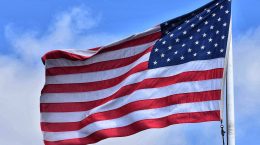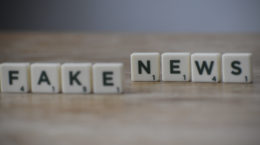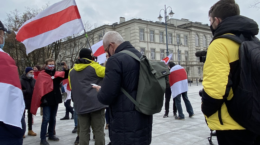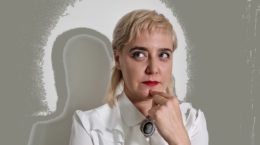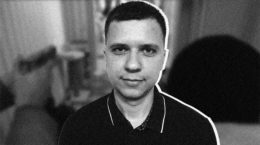33 years ago, our Lithuanian brothers and sisters were the first in the USSR to pass the exam in civic maturity for the right to be free people in an independent, democratic country. It was an extremely difficult and heartbreaking exam, and the Lithuanians have every right to be proud of themselves.
Today, grandchildren of the witnesses and participants of those events have entered the adult life. Today, the course of the events is being determined by people who were children at the time, or weren’t born at all. Therefore, first we are going to remember the events which without exaggeration shook the already collapsing, but still dreadful Soviet Union.
Less than in a year after Lithuania had announced its secession from the USSR, on the night of January 12 to 13, 1991, the Soviet troops and special services attacked the TV tower and the building of the Lithuanian TV and radio center in Vilnius. On that tragic night, 15 people were killed, over 500 were injured. Although the Soviet authorities denied those facts, the USSR citizens did not believe them, as the images of those events flew around the world. A small Baltic republic showed an example of indestructible desire for freedom; after that, the collapse of the Soviet Union could not be stopped.
What preceded it? On March 11, 1990, the Lithuanian Supreme Council passed the Act on the Restoration of the Independent Lithuanian State. Thus, Lithuania became the first Soviet republic that announced its secession from the USSR. During the whole following year, Moscow refused to accept that fact using all possible means, including economic sanctions and blockage of goods and energy carrier supplies. However, the small Lithuanian nation did not surrender, so at the beginning of 1991 Moscow decided to “restore order” in the republic. The more so because by that time a block of retrograde enforcers had entirely formed in the USSR government ready to “save” the Soviet Union using violence.
On January 8, transfer of additional forces of the Soviet Army to Lithuania started. On January 10, Mikhail Gorbachev offered to the Supreme Council of Lithuania to “restore the Constitution of the USSR” in the republic immediately and in full capacity. On the same day, Generals Valentin Varennikov and Vladislav Achalov flew to Vilnius; it was them who were responsible for the forceful suppression of democracy in Lithuania. On January 11, the Soviet generals occupied the Printing House in the capital and several buildings in other Lithuanian cities and towns.
In response, the Supreme Council of the country called on its citizens to go in the streets and guard the building of the parliament, radio center, telephone stations and the TV tower. Then, communists loyal to Moscow stood at the head of the coup: they announced the establishment of the Committee of National Salvation of the Lithuanian SSR, and announced themselves to be the only legitimate governmental body in Lithuania.
On the night of January 12 to 13, the Soviet military supported by tanks and by Alpha group, which had arrived from Moscow (the KGB special forces), began, as they believed, the “restoration of Soviet authority in Lithuania”. One column moved towards the parliament; however, the storm never happened: the military did not take the risk of killing peaceful citizens which were defending the building of the legislative power. Nevertheless, the second column started the storm of the TV tower and the building of the Lithuanian radio and television, which were also defended by peaceful citizens of the republic.
During that attack, 15 people were killed, over 500 were injured. One of those killed was ran over by a tank, three more were ran over by trucks, eight people died of gunshot wounds, and one was killed by an explosion. Nevertheless, the Lithuanians withstood that tragic night, and soon the Soviet troops and special forces had to leave the country.
A long investigation followed; a lot of lies were coming from Moscow. Unfortunately, Belarus also participated in hiding the truth about those events. It’s enough to recall, that the former head of the Vilnius garrison, Vladimir Uskhopchik, convicted in Lithuania to 14 years of imprisonment for his crimes, is still hiding in our country.
Do you know what I want to say today, 32 years after those events, when our countries have already come through and lived through so much? I am very proud of Lithuanians. On those terrible January days, they did not get scared, they did not back down, they did not flinch in front of that monstrous machine, occupying one sixth of the land on our planet. The USSR could literally wipe Lithuania off the map. Yet, the people said: “Enough! We want freedom!” Their determination was so strong that the Soviet monster retreated, and later, in the same year 1991, dropped dead.
Today, another nation, Ukraine, is fighting for its right to live in a free country. It is fighting, bleeding in a horrible war with a blood-thirsty monster, the heir of the USSR. Lithuania is helping Ukraine in its struggle, because it knows how high the price for freedom is.
Also, Lithuania is helping the Belarusian civil society, still young and in search of its own way. The thirst for independence has not won in Belarus yet; our nation has not made its way to freedom for now. However, we are already on that path, and we are very grateful to the Lithuanian people for their support. This is why we are commemorating the anniversary of those tragic events near the Vilnius TV center together with Lithuania: it is our duty of remembrance, too.
Olga Karach
Our House



